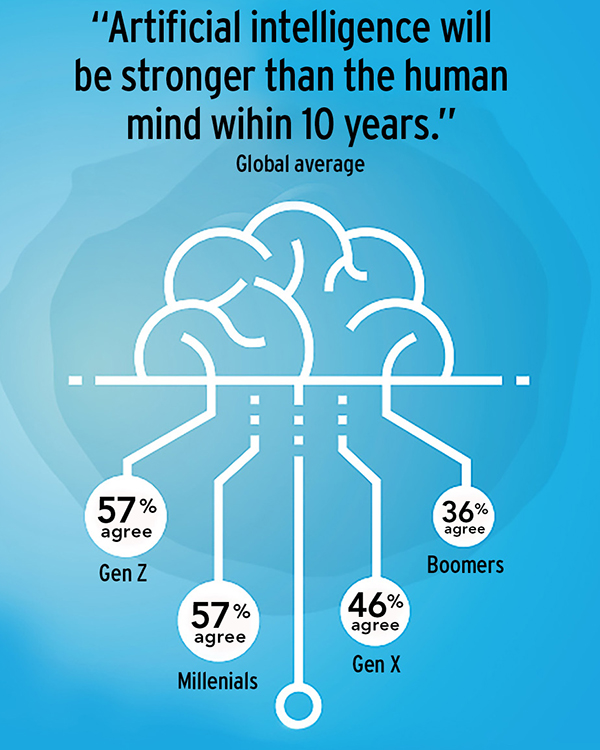Ford Predicts the Trends Driving 2019

It is helpful to understand consumer behavior when crafting efficient supply chains. Ford’s 7th annual Trends Report, which analyzes consumer behavior based on interviews with more than 13,000 people across 14 countries, provides some insight.
Ford says these surveys don’t look just at behavior toward automobiles, but rather the factors that drive behavioral changes. For example, Ford finds that 87 percent of people think technology is the biggest driver of change, and 79 percent believe that technology creates positive change—it doesn’t, however, cover the 21 percent of people who must think technology is a force for evil.
About 70 percent of respondents believe that humans should have a mandatory break from devices, and nearly half (45 percent) of all respondents admit that they envy people who can "disconnect."
According to Ford, here are seven trends that will make an impact in 2019:
1. Tech divide. While 87 percent of adults think that technology is the biggest driver of change, 46 percent of Gen Z respondents (that’s the crop after millennials) fear that technology is trying to get in their heads.
- Nearly 70 percent of millennials would like to undo some of the behavioral changes they have experienced as a result of technology. Before you turn your nose up at the meddling kids, 53 percent of baby boomers feel the same way—that technology has changed them.
- 57 percent of millennials and 46 percent of Gen Xers think that artificial intelligence (AI) will be stronger than the human mind within 10 years.
- 44 percent of all women and 37 percent of all men surveyed admit that they are afraid of AI, and even more people (48 percent of men, 39 percent of women) admit that they don’t really understand it.
2. Digital detox. Just put down the phone. It sounds easy enough—and 45 percent of people are jealous of those who can actually do it—but 39 percent of Gen Z and millennials say they are addicted to social media. One quarter of the same groups say that they would rather lose their ability to smell than give up their devices.
3. Reclaiming control. In the past year, 84 percent of all adults have taken "small steps" to improve their lives, and all but 8 percent have stuck to their guns. Basically, researchers found that people want to and can improve as long as they don’t bite off more than they can chew.
4. Many faces of me. Ford’s study finds that identity isn’t set, but rather dependant on our circumstances and environment. More than 50 percent of millennials and Gen Z say that they are more outgoing on social media; only 17 percent of boomers say the same.
- 84 percent of all adults say that people sugarcoat their lives on social media.
- A shocking 74 percent of Gen Z respondents think that people are fighting to stay relevant.
5. Life’s work. Ford’s findings reaffirm that employees’ work-life balance is changing. For example, more than 60 percent of all respondents think that companies should reward employees for using all of their vacation time.
- 77 percent think that companies don’t do enough to accommodate working parents.
- 84 percent believe that diverse opinions lead to positive change.
6. Eco-momentum. People are willing to make changes as long as they know that they would make a difference. About 56 percent of U.S. adults would change the way they eat if they thought it would help the planet, which is dead last when compared to the 13 other countries polled. The same is true when it comes to the number of people who consider the environmental costs of each purchase—again, U.S. respondents come in dead last.
7. Easy street. Finally, Ford wanted to know how technology is changing transportation.
- 67 percent of all people think technology makes the commute less stressful.
- 43 percent of people in the United States think that self-driving cars will be safer than humans driving cars.
